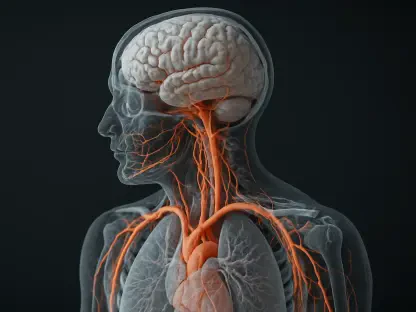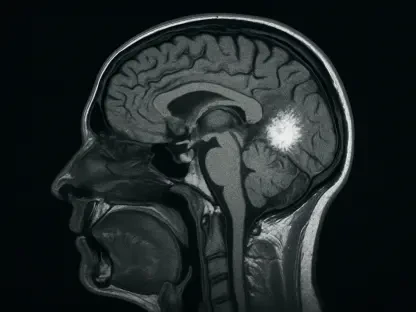In the heart of Norfolk, a profound legal battle over medical marijuana usage has underscored significant societal and legislative shifts. The case of Brandon Beltaine, a former firefighter who was terminated due to his use of medical marijuana, reflects broader changes in Virginia’s legal landscape and sparks discussions about personal rights and professional responsibilities. As public sentiments around the medical use of cannabis evolve, Beltaine’s story serves as a lens to view the complexities arising from outdated legal frameworks and the challenges of navigating them.
The Evolution of Medical Marijuana Legislation in Virginia
Legislative Changes and Their Implications
The journey of medical marijuana legislation in Virginia has been marked by a gradual acknowledgment of its therapeutic benefits and a corresponding push to adjust legal frameworks. Initially, in 2015, Virginia set the stage by legalizing cannabis for epilepsy patients. As research advanced and public discourse shifted, the law expanded in the following years to cater to a wide array of medical conditions. By 2022, the scope widened to include individuals with valid medical certifications, permitting them to access cannabis at licensed dispensaries.
This incremental evolution in marijuana legislation resonates within a broader societal acceptance of cannabis as a legitimate medication, providing relief for conditions such as anxiety, depression, PTSD, and ADHD. With legislative changes, public sector employers in Virginia, including those in high-stakes professions like firefighting, found themselves navigating a transitional period—a phase where state laws began to diverge from prevailing federal stances. This divergence has presented challenges for cities and municipalities, which now grapple with aligning employment policies with contemporary legal and societal expectations.
The Clash of Legal Frameworks
Despite the advancements, ambiguities persist within Virginia’s legislative structures, as highlighted by Brandon Beltaine’s predicament. His firing in 2023 brought to light lingering policy inconsistencies and misalignments between state-endorsed medical usage rights and municipal employment policies. The tension between Virginia’s acknowledgment of cannabis’ medicinal value and long-standing federal opposition exemplifies a broader issue—the dissonance between different governing bodies and their respective laws.
Beltaine’s dismissal was rooted in the city of Norfolk’s policy against medical cannabis usage, despite an established local acknowledgment of its legality. This scenario is complicated by the dynamic legal environment, virtually caught in flux. As medical marijuana gains acceptance, local authorities and employers struggle to harmonize inclusive, pro-medical marijuana legislation with existing regulatory and administrative protocols. Norfolk’s defense rested on claims of an implied policy, although formally undocumented, against cannabis usage since mid-2022, pointing out an inherent ambivalence in applying legislative changes during their formative years.
The Personal Impact of Legal Discrepancies
A Firefighter’s Journey and Determination
Brandon Beltaine’s commitment to firefighting was inspired by childhood admiration, culminating in his joining Norfolk Fire in 2018 after successfully completing the fire academy. However, the passion and enthusiasm that initially drove his career faced an unexpected hurdle when he embraced medical cannabis as a treatment for personal health issues. Struggling with depression, anxiety, and ADHD, Beltaine opted for cannabis after experiencing undesirable side effects from traditional medication. This transition illustrates a broader narrative of individuals seeking alternative treatments in the face of conventional therapy failures.
His transparent approach about his medical cannabis use, communicated openly with city officials, was rooted in trust that Virginia’s legal framework would protect his rights. Yet, the onset of employment hurdles laid bare the fragility of these expectations. Despite a verbal understanding over time, a drug test administered during a routine physical in May 2023 and resultant unilateral administrative interpretations of policy signaled uncertainty about Beltaine’s job security, ultimately leading to his termination.
Legal Strategies and Advocacy
Beltaine’s legal challenge involved filing a grievance with the city, emphasizing the discrepancy between the policy regulating medical marijuana usage when his employment discussions began in 2022, and subsequent alterations perceived as reactive, post-disclosure modifications. Integral to his argument was the notion of being unjustly terminated, given an existing policy framework acknowledging medical marijuana that shifted post-facto. His case, thus, centers on policy timelines and inconsistencies, further complicated by evolving human resources standards.
Significantly, Beltaine’s narrative has aligned with broader public advocacy from figures like Kurt Detrick at the Virginia Professional Fire Fighters union. This advocacy highlights an increasing awareness of cannabis’ therapeutic role in stress-heavy professions, especially in safety and emergency services. As such, firefighting communities increasingly view cannabis as a feasible alternative to traditional forms of stress relief like alcohol, advocating for policies grounded not just in legality but in reasoned, empathetic employment practices.
The Broader Societal Implications of Policy Evolution
Aligning Employment Policies with Social Trends
Norfolk’s stance on medical cannabis use within its workforce is symptomatic of a larger issue faced by municipalities striving to align employment practices with rapidly changing state laws. This disparity between public sector policy and state-sanctioned medical usage delineates a critical gray area, prompting discussions around equitable workplace practices. Nationwide, numerous governments and organizations acknowledge the necessity to recalibrate employment policies, catalyzed by emerging empirical and anecdotal evidence supporting cannabis’ effective short-term therapeutic benefits.
Incongruities between federal prohibition and state acceptance challenge municipal normative policy assumptions, raising questions of employee rights amid legally recognized personal medical choices. For policy-makers, the priority shifts towards creating frameworks that tactfully balance regulatory statutes with employees’ lawful use of cannabis, ensuring neither professional responsibilities nor personal health efforts are compromised. The need for clarity in documentation practices underscores the importance of preemptive policy adjustments and requisite training for HR personnel.
Advocacy for Rights and Progressive Policies
Beltaine’s ordeal reflects growing public demand for policies that protect employees’ rights amidst evolving medical use norms. Advocates like JM Pedini of Virginia NORML underscore the importance of pushing for employee rights over punitive, outdated practices that fail to account for recognized lawful activities. Amid this advocacy lies a consensus urging for robust policy frameworks that embrace understanding, empathy, and foresight concerning lawful, therapeutic cannabis use.
Considering recent legislative improvements in Virginia, there’s optimism that employment protections compellingly mirror advancements in medical marijuana legality. Such progress elucidates shifting dynamics where societal values are mirrored in law-making, aligning collective expectations with foundational rights. Public sentiment prioritizes individual freedoms concerning marijuana over previous erroneous and prohibitive stances, driving federal actors toward more comprehensive reforms to reduce punitive measures and acknowledge cannabis’s medicinal efficacy.
Looking Forward: Navigating Evolving Employment Paradigms
In the core of Norfolk, a pivotal legal confrontation over the use of medical marijuana signifies substantial changes in societal and legislative attitudes. The focus is on Brandon Beltaine, a former firefighter who lost his job due to his medical marijuana consumption. This case highlights not only shifts in Virginia’s legal scene but also ignites dialogue regarding the balance between personal freedoms and professional duties. As public opinion evolves and becomes more accepting of medical cannabis, Beltaine’s situation exemplifies the intricacies involved in dealing with outdated laws and the difficulties they pose. It raises critical questions about whether existing regulations accurately reflect current social values and medical understanding. His story underscores the urgent need for legislative reform to align with public sentiment and medical advancements. By examining this case, observers gain insight into the broader challenges faced by individuals caught between changing laws and entrenched bureaucratic systems, illustrating the ongoing tug-of-war between progress and tradition.









